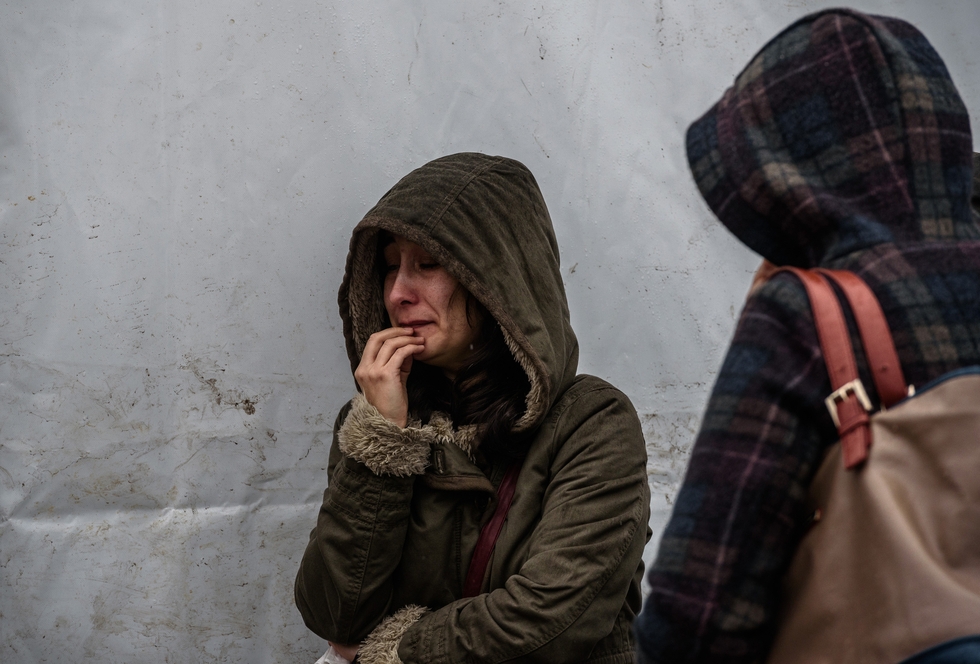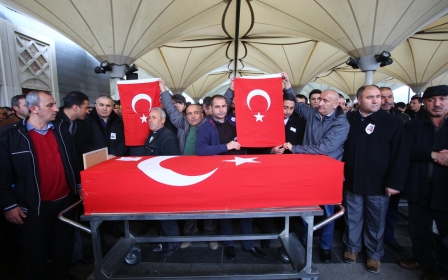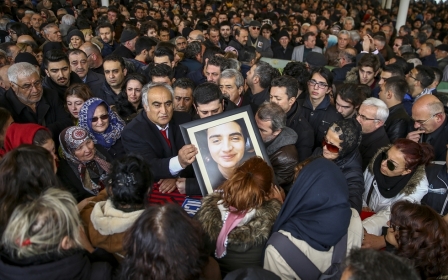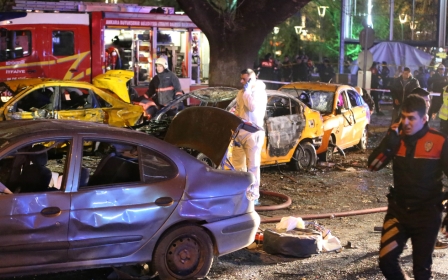Turkey blames 24-year-old PKK member for Ankara bombing

Turkish authorities have identified the suspect in Sunday's suicide bombing in Ankara as a 24-year old member of the banned Kurdish PKK and had been trained by Kurdish fighters in Syria.
According to an Interior Ministry statement, Seher Cagla Demir was born in 1992 in the eastern Van province and had since 2013 been a member of the PKK, also known as the Kurdistan Workers Party.
Demir was already being tried in a Turkish court over her PKK membership and for producing propaganda for the group.
The Turkish government said she had trained with the People's Protection Units, or YPG, in Syria. Turkey blames the YPG for the bombing on a military convoy in Ankara in February which killed at least 30 people.
However, that attack was later claimed by the Kurdistan Freedom Hawks (TAK), a PKK splinter group known for being more hardline in its tactics.
No group or individual has claimed the Sunday's attack in the Turkish capital, the third in less than six months.
On Monday, the offices of the pro-Kurdish Peoples Democracy Party (HDP) in the northwestern city of Edirne came under attack, reportedly by armed gunmen, according to Anadolu.
Turkish nationalists and government officials have often accused the HDP of being the political wing of the PKK, though the party has denied this.
Relatives of the Ankara bombing victims criticised the government's handling of the attack, suggesting they had failed to keep the population safe.
"People have been talking about another bomb attack coming for more than a week but the government took no precautions and didn't warn anyone," Nihat Gorgulu, the uncle of one of the victims, told AFP.
"We are very afraid because the government doesn't care about the people of this country."
Many have pointed to a statement released by the American embassy on Friday which suggested that they expected an attack in the capital, though the warning referred to a different area from the one attacked.
The PKK has in the past disavowed attacks on civilians. Following a car bomb attack in the southeast town of Cinar in January that killed two civilians, the group released a statement apologising for the deaths.
“It is clear that civilians should never be our target in accordance with the general line and political objectives of our movement. The target of this action was the security forces,” the PKK said in a statement released by the pro-Kurdish Firat News Agency (ANF).
Turkey launched airstrikes against PKK targets in northern Iraq following the Ankara bombing.
The war between the PKK and the Turkish state has been going on since 1984 and has so far claimed over 40,000 lives.
Some analysts have suggested that the ongoing conflict in the southeast - which has seen thousands of deaths since last July, according to the Turkish government - has backfired on the PKK.
"The 'uprising' launched by the PKK has not worked. Even the Kurdish population has distanced itself from its operations in the southeastern towns," Can Acun, an analyst with Turkish think-tank SETA, told AFP.
"In frustration the PKK seems to have chosen to go for more serious acts."
Elsewhere, three Turkish university teachers were detained on Tuesday on charges of "terrorist propaganda" and a British academic was questioned by police, as the country's security services cracked down on Kurdish rebels, Turkish media reported.
Acting on a request by the public prosecutor, a court in Istanbul ordered the detention of Esra Munger, a professor at Bogazici University; Muzaffer Kaya, a professor at the University of Fine Arts; and Kivanc Ersoy, who teaches at Nisantasi University, the Dogan news agency said.
New MEE newsletter: Jerusalem Dispatch
Sign up to get the latest insights and analysis on Israel-Palestine, alongside Turkey Unpacked and other MEE newsletters
Middle East Eye delivers independent and unrivalled coverage and analysis of the Middle East, North Africa and beyond. To learn more about republishing this content and the associated fees, please fill out this form. More about MEE can be found here.




